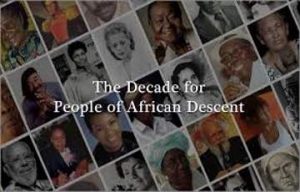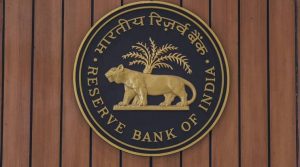Today Current Affairs: 9th August 2021 for UPSC IAS exams, State PSC exams, SSC CGL, State SSC, RRB, Railways, Banking Exam & IBPS, etc
Table of Contents
The New Information Technology (IT) Rules:

On February 25, the Centre framed the Information Technology (Intermediary Guidelines and Digital Media Ethics Code) Rules 2021, in the exercise of powers under section 87 (2) of the Information Technology Act, 2000 and in supersession of the earlier Information Technology (Intermediary Guidelines) Rules 2011, which will come into effect from May 26.
Overview of the new rules:
- It mandates a grievance redressal system for over the top (OTT) and digital portals in the country.
- This is necessary for the users of social media to raise their grievance against the misuse of social media.
- Significant social media firms have to appoint a chief compliance officer and have a nodal contact person who can be in touch with law enforcement agencies 24/7.
- A grievance officer: Social media platforms will also have to name a grievance officer who shall register the grievance within 24 hours and dispose of it in 15 days.
- Removal of content: If there are complaints against the dignity of users, particularly women – about exposed private parts of individuals or nudity or sexual act or impersonation etc – social media platforms will be required to remove that within 24 hours after a complaint is made.
- A monthly report: They also will have to publish a monthly report about the number of complaints received and the status of redressal.
- There will be three levels of regulation for news publishers — self-regulation, a self-regulatory body, headed by a retired judge or an eminent person, and oversight from the Information and Broadcasting Ministry, including codes of practices and a grievance committee.
Public Accounts Committee:

The Public Accounts Committee, headed by Congress leader Adhir Ranjan Chowdhury, is going on a four-day tour of Srinagar, Kargil, Leh and Drass.
- The committee visit is in connection with a 2019 report of the Comptroller and Auditor General (CAG) on “high altitude clothing, equipment, ration and housing” for the Army personnel.
- The CAG report had pointed out delays in the procurement of high altitude clothing and equipment items of up to four years, leading to acute shortage of essential clothing and equipment.
About PAC:
- The PAC is formed every year with a strength of not more than 22 members of which 15 are from Lok Sabha and 7 from Rajya Sabha.
- The term of office of the members is one year.
- The Chairman is appointed by the Speaker of Lok Sabha. Since 1967, the chairman of the committee is selected from the opposition.
- Its chief function is to examine the audit report of Comptroller and Auditor General (CAG) after it is laid in the Parliament.
Abanindranath Tagore:

The year-long celebrations marking 150 years of Abanindranath Tagore will be started soon, with a host of online workshops and talks paying tributes to the leading light of the Bengal School of Art.
- Birth: Abanindranath Tagore took birth in a family of Tagores of Jorasanko in Kolkata in 1871.
- He was a nephew of Rabindranath Tagore.
- Abanindranath’s Ideology: In his youth, Abanindranath received training in European and Academic style from European artists.
- However, during the last decade of the 19th century, he developed a distaste for European naturalism (which represented things closer to the way one sees them – inspired by the principles of natural science).
- He leaned towards painting images with historic or literary allusions. He drew inspiration from Mughal miniatures.
- Another source of inspiration came from the visit of the Japanese philosopher and aesthetician Okakura Kakuzo to Kolkata in 1902.
Contribution to Indian Freedom Struggle:
- In the last decades of the nineteenth century, a new art movement emerged which received its primary stimulus from the growing nationalism in India.
- In Bengal, a new group of nationalist artists gathered around Abanindranath Tagore.
- He was arguably the first major exponent of an artistic idiom that sought to modernise the Mughal and the Rajput styles in order to counter the influence of Western models of art under the colonial regime.
- Though many of the paintings of this new trend primarily focused on themes of Indian mythology and cultural heritage, they are important sources for studying the modern art movement in India and for the art historians.
- His unique interpretation of swadeshi themes created a new awakening and heralded a revival of Indian art.
- He was the creator of the iconic ‘Bharat Mata’ painting.
- Victoria Memorial Hall is the custodian of the Rabindra Bharati Society collection, the single-largest collection of works by the artist.
Bengal School of Painting
- It is also called the Renaissance School or the Revivalist School, as it represented the first modern movement of Indian art.
- It rediscovered the glories of Indian art and consciously tried to produce what it considered a truly Indian art inspired by the creations of the past.
- Its leading artist was Abanindranath Tagore and its theoretician was E.B. Havell, the principal of the Calcutta School of Art.
Permanent Forum Of People Of African Descent:

The United Nations General Assembly has approved a resolution establishing a Permanent Forum of People of African Descent.
- The Forum focuses on the themes of recognition, justice and development.
About the Forum:
- The forum will provide expert advice on addressing the challenges of racism, racial discrimination, xenophobia and intolerance.
- It will serve as “a platform for improving the safety and quality of life and livelihoods of people of African descent” and their full inclusion in the societies where they live.
- It was given a series of mandates.
- They include helping to ensure “the full political, economic and social inclusion of people of African descent,” and providing recommendations on addressing racism to the Geneva-based Human Rights Council, the General Assembly’s main committees and UN agencies.
The forum will consist of 10 members:
- five elected by the General Assembly from all regions.
- five appointed by the Human Rights Council following consultations with regional groups and organizations of people of African descent.
- The resolution calls for the forum’s first session to take place in 2022.
People of African Descent:
- There are around 200 million people identifying themselves as being of African descent live in the Americas.
- Many millions more live in other parts of the world, outside of the African continent.
- Issues: Whether as descendants of the victims of the transatlantic slave trade or as more recent migrants, they constitute some of the poorest and most marginalized groups.
- They still have limited access to quality education, health services, housing and social security.
- They all too often experience discrimination in their access to justice, and face alarmingly high rates of police violence, together with racial profiling.
- Furthermore, their degree of political participation is often low, both in voting and in occupying political positions.
United Nations Security Council (UNSC):

In the past, the Obama and Trump administrations had supported a permanent seat for India on the United Nations Security Council (UNSC). However, the recent statements by the State Department under the new US President Joe Biden, reflects an ambiguous or half-hearted view on this issue.
Highlights of the Recent Viewpoint:
- The US supports a reformed Security Council that is representative, that is effective, and that is relevant.
- However, the US offers qualified support for building a consensus for enlargement of the UNSC – in terms of permanent and non-permanent members.
- The US would not support an expansion of the veto, which is currently exercised by five permanent members (P-5): China, France, Russia, the UK and the US.
- Also, the US’s Ambassador to the UN, had refrained from saying the US supported India and other members of the G4 (Japan, Germany and Brazil) for a permanent UNSC seat.
- It cited the regional disagreements by the Uniting for Consensus (UFC) group – Pakistan, South Korea, Italy and Argentina – which opposes the G4 plan.
- In the past, India was offered to join the UNSC by both the superpowers, the US and the then Soviet Union in 1950 and in 1955 respectively.
- However, India denied the offer due to Cold war politics in that era.
- India is currently (in 2021 and 2022) a non-permanent member of the UNSC and is president for the month of August.
DRONES:

Ministry of Civil Aviation (MoCA) and Directorate General of Civil Aviation (DGCA) have granted conditional exemption from Unmanned Aircraft System (UAS) Rules, 2021 to the National Institute of Science Education and Research (NISER), Bhubaneswar.
- The exemption allows the aerial survey and photogrammetry of centrally protected monuments in collaboration with the Archaeological Survey of India (ASI) using drones.
- The approved locations for drone operations for the NISER include Raja-Rani Temple, Bhubaneswar &Lingaraj Temple, Bhubaneswar.
- This exemption is valid for a period of one year from the date of approval or until further orders, whichever is earlier and shall be subject to the terms and conditions of the SOP issued by DGCA.
- Earlier this month, drone use permission was also granted to the Directorate of Urban Local Bodies (DULB), Haryana for data acquisition, mapping, and implementation of web-based GIS platform for the development of AMRUT cities and property tax survey for Hisar, Panchkula, Ambala urban areas.
Intergovernmental Panel On Climate Change: Sixth Assessment Report:

The Geneva-based Intergovernmental Panel on Climate Change (IPCC) will release the first part of its Sixth Assessment Report, the periodic status check that has now become the most widely accepted scientific view of the state of the Earth’s climate.
- This part of the report will present the latest scientific understanding of the climate system, how and why is it changing, and the impact of human activities on this process.
- The second and third parts of the report, dealing with the expected impacts of climate change, and the actions required to prevent the worst impacts, are slated to come out next year.
- The five previous assessment reports that have come out since the IPCC was established in 1988 have formed the basis of international climate change negotiations.
- The fourth assessment report, which came out in 2007, won the IPCC the Nobel Peace Prize.
- The Sixth Assessment Report will put much more emphasis on regional assessment.
- In the last few years, there has been significant advancement in attribution science, allowing scientists to say whether a particular event was a result of climate change. Attribution science is likely to get important space in the report.
- The Sixth Assessment Report is expected to present specific scenarios the climate change impacts on cities and large urban populations, and also implications for key infrastructure.
The Monetary Policy: RBI:

The Monetary Policy Committee (MPC) of the Reserve Bank of India (RBI) kept the key policy rate — Repo rate, or the RBI’s lending rate to banks — unchanged at four per cent for the seventh time in a row, and reverse repo rate — RBI’s borrowing rate from banks — at 3.35 per cent.
- The panel has also raised the inflation target for fiscal 2001-22 but maintained the growth forecast at 9.5 per cent.
- It decided to continue with an accommodative stance as long as necessary to revive and sustain growth on a durable basis and continue to mitigate the impact of Covid-19 on the economy.
- The RBI panel has hiked the inflation target for fiscal 2021-22 to 5.7 per cent from 5.1 per cent projected earlier.
- Although the target is below the RBI’s upper band of inflation target of six per cent, input prices are rising across manufacturing and services sectors and weak demand and efforts towards cost cutting are tempering the pass-through to output prices.
MAJOR DHYAN CHAND KHEL RATNA AWARD:

India’s highest sporting honour Khel Ratna Award, which was named after former prime minister Rajiv Gandhi, was rechristened in the honour of hockey wizard Dhyan Chand following the admirable performance of both men’s and women’s hockey teams in the Tokyo Olympics.
- Major Dhyan Chand (29 August 1905 – 3 December 1979) was an Indian field hockey player widely regarded as one of the greatest in the history of the sport.
- He was known for his extraordinary goal-scoring feats, in addition to earning three Olympic gold medals, in 1928, 1932 and 1936.
- Popularly known as The Wizard or The Magician of hockey for his superb ball control, Chand played internationally from 1926 to 1949; he scored 570 goals in 185 matches according to his autobiography, Goal.
- The Government of India awarded him Padma Bhushan in 1956.
- His birthday, 29 August, is celebrated as National Sports Day in India every year.




